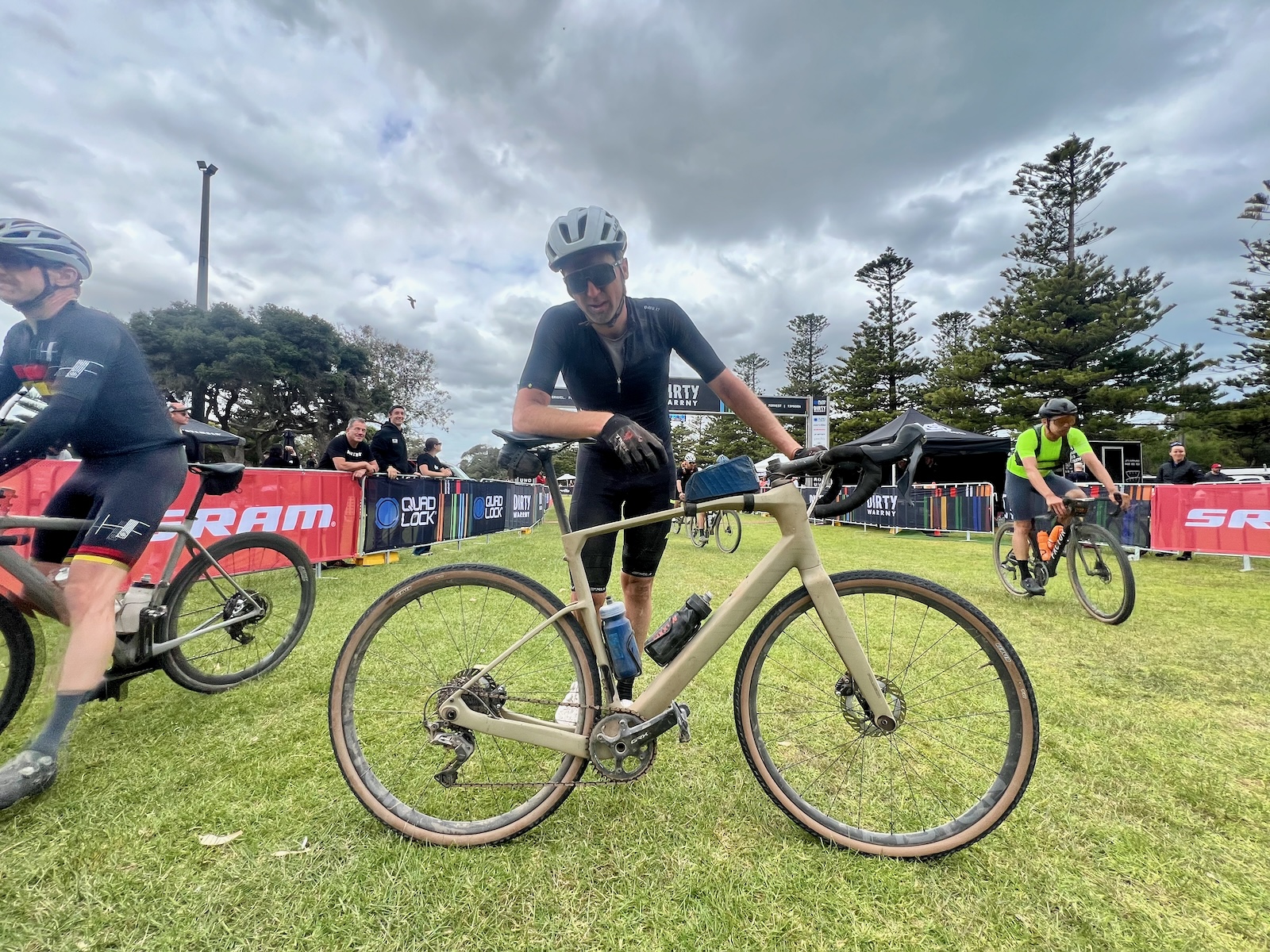The now iconic Dirty Warrny was held over the weekend, a 250km grind over dirt roads and trails between Geelong and Warrnambool in Victoria. Traversing the Otway ranges, the race also features close to 3800m of elevation gain. The race takes most riders over ten hours to complete.
This was my first time competing in the race and as most seemed to suggest I felt tremendously unprepared for such an undertaking. I arrived in Geelong on Friday, realised I’d left my rotor tool at home, picked up Mike Blewitt to be my driver, got my rotors fitted by Simon Gerrans, and ate some pizza for dinner with friends. Then it was time to sleep before a 6:30 start the next day.

Shortly into the epic journey it was evident that was going to be a long, long unpleasant day of pedalling. Throughout my 9+ hours of racing many times I was questioning why do I and so many others spend time and money to commit to something that is in its experience itself terrifically unenjoyable?? Some with masochistic tendencies may find the constant discomfort and pain of gravel racing enjoyable, I however do not.

In mountain bike racing, the physical challenge and discomfort is often dispersed with some exhilarating sections of trail or features. In gravel racing, it is a constant, mind numbing discomfort, save for some cool descents that were in the Dirty Warrny. Yet, gravel racing is the discipline that is attracting the most interest across the world. The oft mentioned reason of ease of participation for all skill levels is evident. However, there must be something more that these races inspire in peoples imagination to want to put themselves through extended periods of pain and discomfort voluntarily in fact, often at great financial and time expense.
Racing on the road many years ago, I had many teammates who were from France. The French typically are reliably philosophical about most things in life, for endurance sport they would say that “this teaches life”. Indeed the demands of gravel racing and what is required to overcome them are a good metaphor for the demands most of use will face at some point in ‘off bike’ life. Hence, putting oneself into the scenario where you must get through an immediate difficulty is kind of good training for life itself. “I am cooked, I don’t think I can turn the pedals anymore but I need to get over this 1.5km 8% gravel climb”, “I’ve punctured a tyre and am dozens of kilometres to the nearest support stop”. Getting through these decisions and choosing a strategy to get through such challenge can only help our regular life skills.

Gravel racing also requires good camaraderie or teamwork to do well. As is the case in cycle road racing, the group is ALWAYS stronger than the individual. I was grateful to be with a solid group of about 20 for the duration of the Dirty Warrny. The huge benefit especially in driving head wind of being with a group helps the forward motion of everyone involved, attacking solo and trying to brave an individual move from a large group into a block headwind rarely pays any reward. Whereas the rider who works together with the group and encourages those around him/her will usually gain respect and results. Although it must be noted the brave and strong Scott Bowden did ride away solo for 70km to win this years Dirty Warrny. Indeed, fortune favors the brave and those with a massive engine!
Full results for the Dirty Warrny are online.
Alas, the benefits of events like this for me do not really lie in the experience of the event itself, in fact I can think of a million things I would rather be doing on a weekend day. However, the happiness is often in the retrospection rather than the experience itself. A really cool experience looking back and one that I hope has helped prepare me for off bike life.

